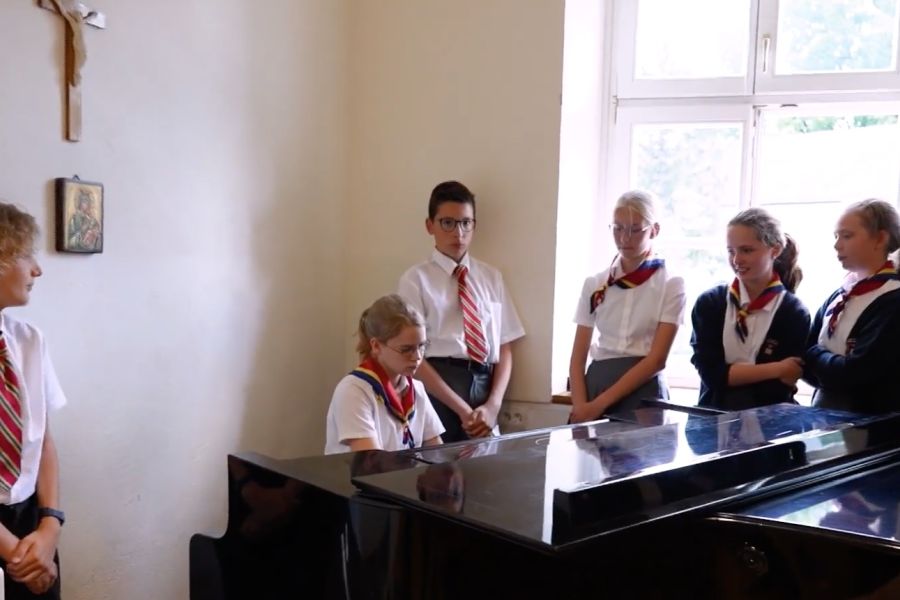Inside the First Catholic Classical School in Austria
The school was initially founded by parents who wanted to give their children a real Catholic education.

A Catholic school in Austria is the first in that country to offer a unique, classically-based approach to education for young students.
EWTN News In-Depth Correspondent Colm Flynn recently visited St. Thomas More School in Austria, where students and faculty members spoke about the values that run the culture at the school and the benefits that come from a classical approach to education.
One of the immediately noticeable things about the school is the sense of joy that seems to radiate from the students, which was reaffirmed by many of the students’ comments.
“I’ve had a great relationship between teachers and students,” said one student. “And I really like the community; I am proud to be here.”
Perhaps one of the reasons why many of the students seem to enjoy the school can be traced back to the principal values that contour the experience at the school.
The school was initially founded by parents who wanted to give their children a real Catholic education. Dr. Christiaan Alting Von Geusau, one of the founding parents, talked about the vision of the school.
“Well, I think the first thing that has to be said is Austria certainly has a very high level of school education, academically speaking,” Von Geusau said. “But … we were [also] looking for two other things: we were looking for a profoundly Catholic environment … and second, a school that goes back to the classical Catholic liberal arts.”
The latter perspective is what is particularly unique about the school’s education philosophy, as it seeks to teach and emphasize to students the importance of critical thinking — emphasizing logic over sole memorization.
According to Von Geusau, this emphasis on learning how to think is why rhetoric, grammar, and logic are the first three steps that students learn — which EWTN had the opportunity to see in action through the students’ dissection and subsequent presentation of a mock court case.
Additionally, as with any school, the teachers are crucial for establishing a productive and welcoming environment for all the students. Anni Sellner spoke about her experience teaching at the school.
“I started when the school started, actually; it was really an adventure for me,” Sellner said. “And I was able to grow also with the school.”
Von Geusau hopes that the school’s Catholic perspective allows the students to think critically about God’s creation — while also having the support of the Catholic Church’s tradition of truth guiding them in the process.
“What we as Catholics can do is we can bring in a rich tradition … but … we can bring in the most important question: what did God the Creator intend with this? … And that broadens the perspective enormously,” Von Geusau said.
- Keywords:
- classical education
- austria














